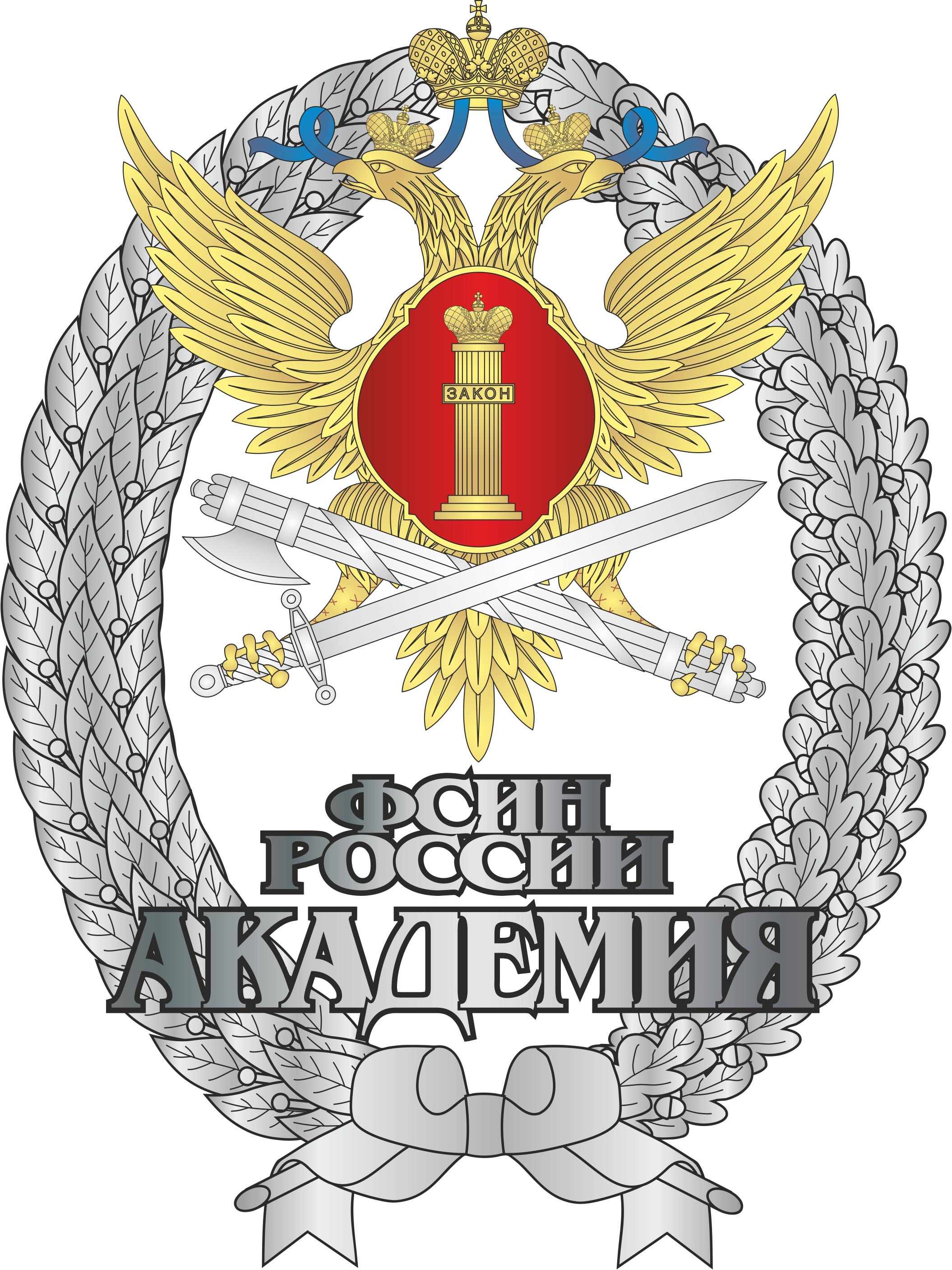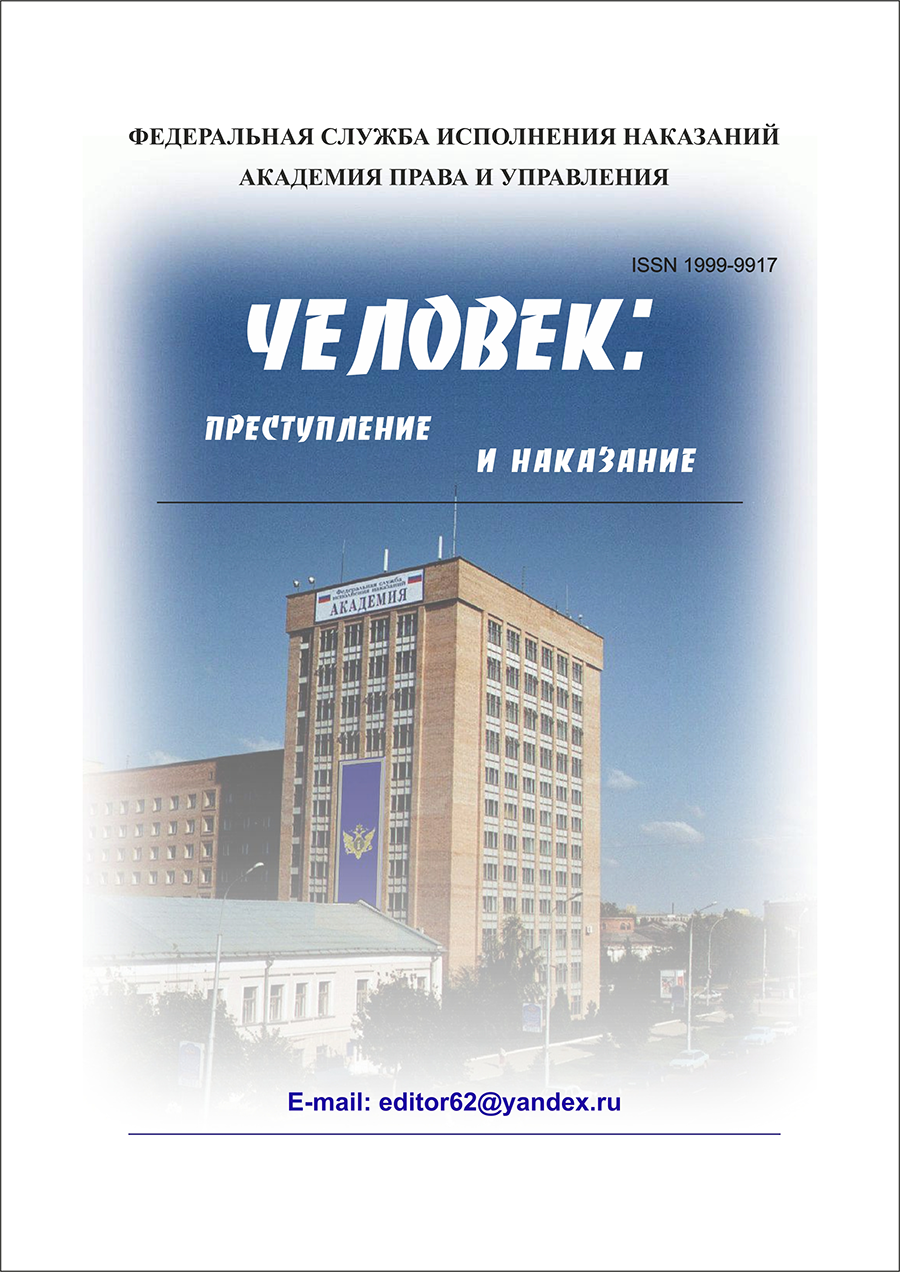Ryazan, Russian Federation
Russian Federation
UDC 159.9
The article examines the psychological characteristics of foreign convicts. Earlier, a number of scientists raised the issue of the national characteristics of convicts and their consideration in the work of correction. The available studies were mainly aimed at studying the characteristics of convicts from Central Asian states in connection with their significant share in the socio-demographic structure of convicts. Convicted citizens of Ukraine have not previously acted as a special subject of psychological research, including comparative studies. The object of the study is the psychological characteristics of convicted citizens of Ukraine obtained during psychological research in correctional colonies. Research methods: "Suicide Risk Questionnaire" (SRS), G. Smishek test, "Quarantine", "Individual typological Questionnaire" (ITO), "Assessment of the level of volitional self-control" (VSK), "Study of life orientations" (SSO) and "Comprehensive study of the personality of the convicted person" (KILO). Methods of statistical data processing – calculation of averages and graphical analysis. The sample size of the study is 754 people.
personality characteristics, convicted foreigners, national mentality, correctional colonies, psychological diagnostics, citizens of Ukraine, national characteristics, national specifics of convicts
1. Abramova, I. G. 2022, ‘On the problem of Psychology of Folk character in Ukrainian literature’, in Foreign Languages: Innovations, prospects for research and teaching: materials of the V International Scientific and Practical Conference dedicated to the Memory of M. A. Cherkas, pp. 455-460, Minsk.
2. Dzhumabaev, O. S. & Iontseva, M. V. 2023, ‘Features of the ethnic identity of convicted migrants with recidivist behavior: the development of tolerance among convicted migrants to other ethnic groups’, Bulletin of the University, iss. 6, pp. 205-211.
3. Ilyushkin, V. V. 2008, The specifics of socio-psychological stereotypes in interethnic interaction: on the example of Russians and Ukrainians: PhD thesis (Psychology), Kostroma.
4. Kalita, V. N. 2017, ‘Peculiarities of Ukrainians’ mentality in the context of Russian-Ukrainian relations‘, Observer, iss. 9, pp. 83-93.
5. Kandybovich, S. L. & Razina, T. V. 2022, 'Psychological Origins of Ukrainian Nationalism', World Civilizations, vol. 7, iss. 2, pp. 20-30.
6. Krasnenkova, S. A. 2014, ‘Prevention of penitentiary crimes on ethnic and religious grounds’, Jurist-Jurist, iss. 5(66), pp. 73-77.
7. Kuznetsov, M. I. & Ananyev, O. G. 2016, ‘Social work with convicted foreigners', Vedomosti of the penal system, iss. 8(171), pp. 40-41.
8. Mazeina, O. N. 2017, ‘Taking into account the national psychological characteristics of convicts in the pedagogical activity of the head of the detachment’, Bulletin of the Kuzbass Institute, iss. 4(33), pp. 145-150.
9. Mayorov, O. A., Polyanin, N. A. & Pintyashin, E. V. 2014, ‘Features of convicted migrants’, Economics and Society, iss. 4-3(13), pp. 1020-1023.
10. Pechenyuk, A.V. & Pastukh, Yu. A. 2018, ‘Mental obstacles of Ukrainians on the way to building an Effective Society’, Actual Scientific Research in the Modern World, iss. 3-8(35), pp. 96-100.
11. Polyanin, N. A. & Markov, A. Yu. 2014, ‘Some personality features of a convicted foreigner’, Applied Legal Psychology, iss. 4, pp. 101-106.










